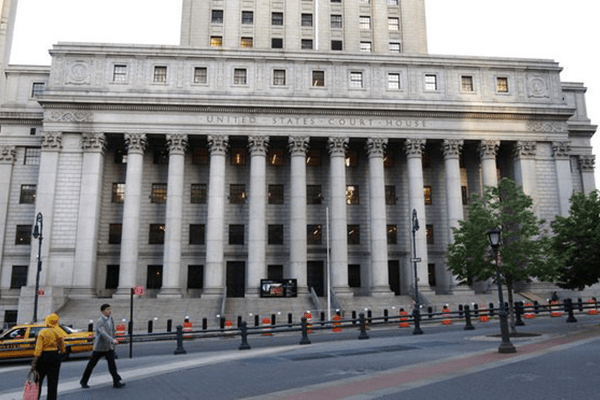Appellate Court Must Decide Whether To Reverse Or Affirm Lower Court Dismissal
LEGAL ANALYSIS
Now that Clarkstown voters have settled the question over the Palisades Center covenant that allows the mall to utilize additional gross leasable space and expand, inquiring minds want to know what happens next with the pending litigation between the Town of Clarkstown and EklecCO, the mall’s owner.
The parties are awaiting a decision from the Second Circuit Court of Appeals as to whether the District Court in White Plains appropriately dismissed EklecCO claims based on them being filed after the statute of limitations lapsed. The District Court decided that EklecCO claims were time-barred, without having decided the merits of the claims.
In a 18,529 to 12,873 tally — a 60-40 split (we are still awaiting an absentee ballot count), voters said “yes” to the question: “Do you agree that the Town of Clarkstown shall lift the restrictive covenant that limits the Palisades Center Mall to 1.854 square feet of gross leasable space?”
Counterintuitively as it may seem, the passage of the referendum likely has no impact on the pending appeal because the appellate court may only determine whether the dismissal based on the statute of limitations was proper. The appellate court could either affirm or reverse the decision of the trial court. A reversal could also include specific instructions on remand.
The federal claims in the suit were determined to be “time-barred” or too late for the court to tackle on their merits because the case was filed after the statutes of limitations had expired. What the court rejected was EklecCO’s efforts to show that other developments in town that were built in the three years prior to August 2016 when the suit was filed were not subject to similar restrictions.
In a 24-count complaint, EklecCO alleged the Town of Clarkston, Supervisor George Hoehmann, the Town Board, and the Planning Board denied EklecCO its due process, equal protection, and First Amendment Rights. The case was largely based on the Town imposing unique conditions, including the restrictive covenant and public referendum, on EklecCO and the Palisades Mall.
In 16 of the 24 counts, EklecCO sought “declaratory relief,” which means they were seeking the court’s determination that the town violated its rights. The remaining eight counts sought damages and attorney’s fees based on those alleged violations. However, it is difficult to measure damages because of the speculative nature of retail real estate. For example, the mall may argue it suffered damages when it was unable to lease the unused gross leasable space yet to retailers. That argument could be mitigated by the availability of other vacant space.
The district court never reached a determination on the merits or any damages; the case was dismissed based on the statute of limitations in May 2019.
At issue is what happens now that Clarkstown voters lifted the covenant in the Nov. 3 election, more than four years after the original suit was filed. The question before the appellate court was whether the earlier dismissal was appropriate. The referendum itself is likely irrelevant to that issue.
That said, if the appellate court bounced the case back to the district court, the mall would still have the burden of proving its rights were violated. The passage of the referendum this month is not evidence that the town violated the mall’s rights. It is at best a “subsequent remedial measure,” which is a legal concept that corrective actions in the future are not evidence of past wrongful behavior. For example, if someone slips and falls on your walkway, and you repave the walkway after the accident, the action of correcting the problem is not evidence of the walkway having been dangerous in the first place.
Clarkstown is obviously hoping to win the appeal, which would bring the litigation to a close and put to bed any further financial exposure from damages and attorneys’ fees. A decision in the near future is expected.
Meanwhile, the mall is now free to use 250,000 square feet of existing empty space on the fourth floor and build another 250,000 square feet outside the “four walls.” However, Supervisor George Hoehmann has said “any increase in the use of space is subject to the approval of the town’s planning board. This is not a blank check.”











